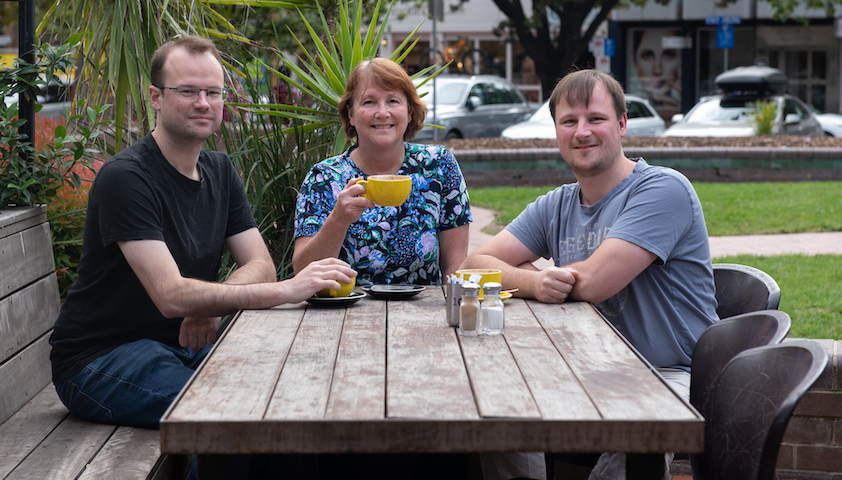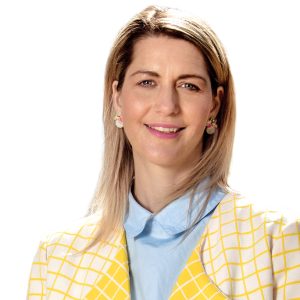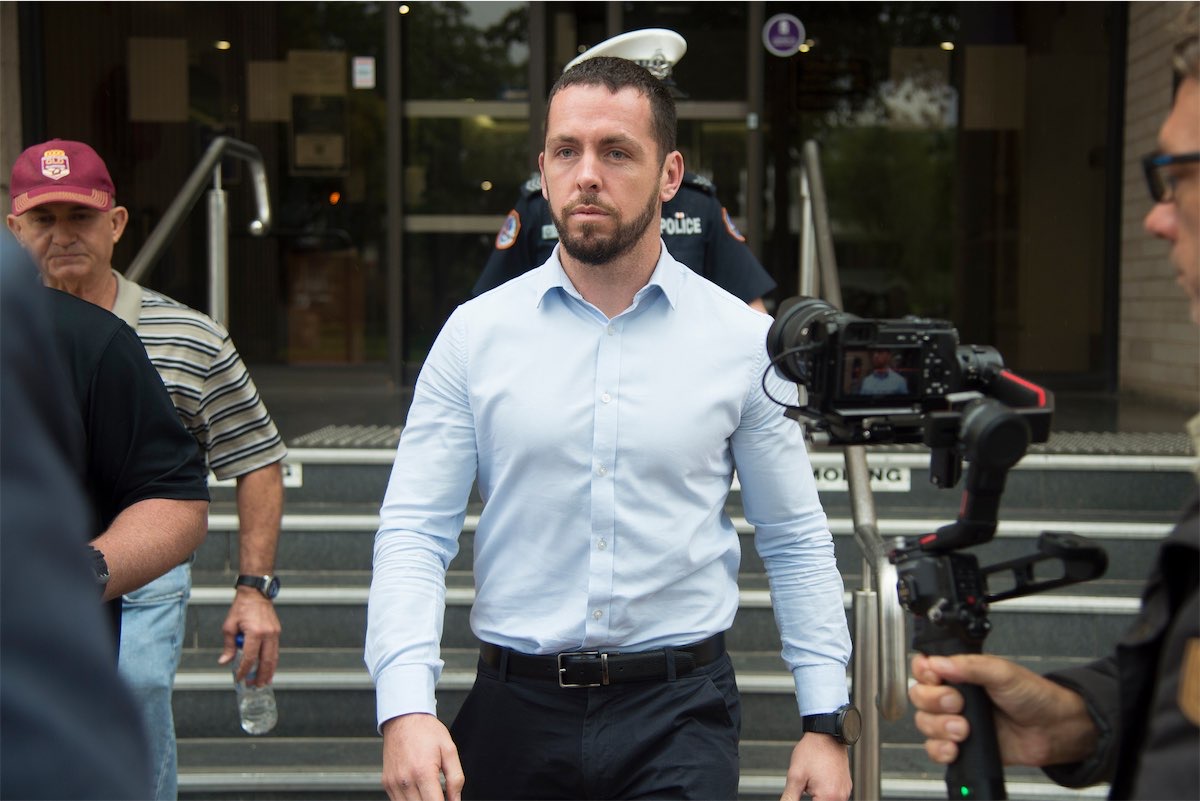
TWO young men at university couldn’t have imagined that a knock at the door one morning would irrevocably change their lives.
In 2015, Thorsten, 32, and Bjorn, 31, Beowulf stood wrongly accused of the murder of their grandmother, Katherine Panin, and spent 14 months incarcerated and fighting to clear their names.
Their mother Melissa, 61, was jointly accused of the same crime, and along with her sons, was remanded behind bars.
Despite the trio being acquitted of murder in April, 2019, the ordeal is still something the Beowulf family cannot easily forget.
“It was surreal,” Melissa said.
“I was appalled that anyone could think I would be guilty of such a crime.
“It came out of nowhere at a time I was grieving the death of my husband.
“To have complete lies being told about me was really hard.”
Melissa’s husband, Thor, had died of pancreatic cancer in 2015.
Later that year, her mother-in-law Katherine was found dead on the backyard steps of the family’s Canberra home in Red Hill.
At the trial, prosecutors had alleged the 81-year-old was killed by her daughter-in-law, Melissa, and her two eldest sons Thorsten and Bjorn, in a dispute over family money.
The two-month murder trial centred on whether Katherine died in an accidental fall or was murdered by her three family members.
It took only a few hours for a Canberra jury to acquit them.
Despite being cleared of murder of their late grandmother, almost two years ago, the brothers still live with the stigma of being accused of a grim crime.
“It totally uprooted everything I was doing at the time,” Thorsten said.
“I was at Sydney University finishing my agricultural science degree and that very morning I was preparing for a test when I got a knock at the door and found 20 police standing there.
“A few minutes later I’m at the station, then a few hours after that I’m at the magistrates court being processed, then by late afternoon I’m in the watchhouse waiting overnight for the morning hearing.
“It’s such an extraordinary experience, everything changes and all these things you are just about to do in your life… forget about it.”
The experience was just as harrowing for Bjorn, who at the time of his arrest was studying and living on campus at the University of Canberra. The moment his life was turned upside down is still deeply ingrained in his memory.
“The most extreme bit of that morning was the knock at the door and finding it was the lead investigator coming to arrest me,” Bjorn said.
“The public humiliation of being taken through the front lobby was intense.
“It was like a scene shift in a film going from one frame to the next, and suddenly you are not in your life anymore, it’s like you are in a suspended animation.”
Arrested, accused and locked up, the trio spent over a year at the Alexander Maconochie Centre.
Adjusting to life inside was an eye-opening experience made slightly bearable by the fact the brothers shared a cell.
“It’s as boring as anything in there, you have nothing to do, you are completely at your own discretion, and that is made doubly worse when you are locked in your cell unable to leave a three by three-metre space that you are sharing with another person, even if it is your brother,” said Bjorn.
“It can be scary in there and things can boil over quickly, but generally most of the time nothing happens,” said Thorsten.
“What we realised about ourselves was we are tougher than we thought.
“We definitely were able to get along with all sorts of people because it’s a melting pot in there, there’s people who have committed the worst crimes to those who have speeding fines and everyone is in together.”
The brothers’ observation from their time in prison was that methadone treatment is worse than drug addiction.
“The biggest issue in there is the drug dependence and that’s exacerbated by the reliance on prescribing methadone,” said Thorsten.
“I’m not saying those people are wrong for using it or that it’s wrong for the prison to be prescribing it, but it’s not much better than the drug itself, it’s not great.”
Melissa was housed in the women’s section of the prison, in shared cottage-style accommodation with six other prisoners.
Her status as a renowned artist and Archibald Prize finalist was of no benefit to her inside.
For a woman who spent a large part of her life with artistic freedom, to be subject to the most punitive environment was a shock.
She recalls the humiliating experience of being handcuffed and led away and for the first time in her life having her freedoms removed.
“The shock of having handcuffs on for the first time was appalling, it was immensely distressing,” she said.
“I’d had breast cancer in 2011 and needed follow up appointments at hospital and so I was double cuffed and taken through the main door of the hospital and put on display, it was awful.”
Despite the hardening ordeal, life on the inside wasn’t all bad.
“They gave me a birthday party, one girl painted a bowl and cup for me, we had a nice dinner and they put streamers across the place; it was the first time I’d celebrated my birthday,” said Melissa.
A lack of freely available legal advice at the time of Beowulf’s incarceration meant the family had to rely on their own resources and prepare as best as they could for their own defence until legal aid was sorted.
“We basically worked on our own case without legal input until just before the pre-trial, with the purpose being to identify all the deficiencies that were there,” said Thorsten.
“Every week we got a new document, we were always reviewing things, there was no time to be complacent or wallow in self pity,” said Bjorn.
“Once we got bail we had a mountain of material that we could draw upon, because so much of the case was about the history of the family; it was intense.”
The trio were granted parole in 2018, went to trial the following February and were acquitted in April, 2019.
When finally found not guilty of the most serious crime, the Beowulfs didn’t feel a sense of relief or justification, it was a flat feeling, still carrying the stigma of being accused and the sense of injustice is something they won’t forget.
“It’s not like woo-hoo, it’s more like finally this is over but you don’t feel like you’ve won,” said Thorsten.
“You feel like you have been dragged through this process for nothing, you knew what the result should be and it ended up being that way.
“Does it feel good to be vindicated? A little bit but it doesn’t feel like a victory and it doesn’t undo the damage.”
The family’s lack of understanding of the legal process from the time of their incarceration is motivating them to set up an advocacy group for people who find themselves on the wrong side of the law.
“You’re just dumped in jail with no warning and no information, you are just put in a cell and you don’t know what is next,” said Bjorn.
“One of the upshots of our experience is we want to inform people what their rights are, just basic rights, like the search procedures and things like that,” Melissa said.
“You think you understand the legal process because of what you see in the movies, but it’s nothing like that, we were so ignorant of the law.”
Doing their best to put the worst time of their life behind them, the Beowulfs are trying to remain positive about their future.
“It still worries us being in a public place, especially if people recognise us. They don’t say anything if they do but now we have, at least, an alternative opinion out there and that has helped us feel normal again,” said Thorsten.
“I wouldn’t say we are bitter; we are still sorting out some legal matters, and once that’s done it’s back to getting on with life.”
Who can be trusted?
In a world of spin and confusion, there’s never been a more important time to support independent journalism in Canberra.
If you trust our work online and want to enforce the power of independent voices, I invite you to make a small contribution.
Every dollar of support is invested back into our journalism to help keep citynews.com.au strong and free.
Thank you,
Ian Meikle, editor





Leave a Reply